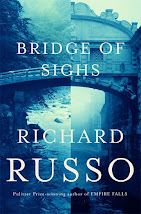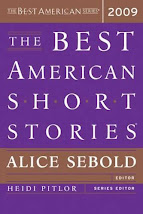Friends,
I was able to check out the film There Will Be Blood last night and I've been kicking it around in my head for a while to try to make sense out of why I didn't think it was one of the greatest movies of all time, which some believe it is. Seriously, I've seen comparisions made to Citizen Kane and this movie, and being an instant classic, bound for glory highest. And you know, I didn't see it. I'm going to try to talk about this movie now without giving too much away.
Here's the main thrust of the movie. You got Daniel Plainview, oil man, trying to make money. One day, while drilling, he is approached by a fresh faced fella named Paul Sunday who directs Plainview and his oil drilling people to the Sunday Ranch out in Little Boston, California because that ground is teeming with oil, to the point where it's bubbling up through the ground. Plainview gets to the Sunday Ranch, discovers that there is a strong weirdo religious element there and the church is led by Eli Sunday (who might be the twin of Paul). Loads of oil is found, Plainview snatches up all the land, drilling happens, money is made, and the slow decay of the tender human psyche in the face of money, family and competition unfurls.
There were elements of the movie that were magnificent. I loved how the first 10 or so minutes has no speech. It was perfect and didn't seem like an artst fartsy conceit. I loved the oil rig fire that happens as well...truly some glorious filmaking in the way it was staged, how the characters reacted, and how frenetically real it felt. And Daniel Day-Lewis is incredible in this, and makes Planview seem alive, and at once sympathetic and menacing. He'll get that Oscar, bank on it (if for anything else, as a "Sorry chum" kind of Oscar for not giving him one when he rescued Gangs of New York).
And there were elements that I thought sucked, like the score. I don't know anything about the "rules" of scoring a movie, but I think of it as kind of like similes in fiction. They're going to be there, but they should probably be organic to the text, and add the perfect unified image to whatever is being said. Now, in There Will Be Blood, the score, at least much of it, is discordant noises, which is fine, but it seemed to drown out the speech at times making hard to understand what the actors were saying. To me, that's bad music since it's drawing attention to its own uniqueness, just a like a bad simile. I also didn't care for the fact that they never clearly defined what is going on with Eli and Paul Sunday. They might be twins, or Eli Sunday might be batshit insane and Paul is a side of Eli's personality. What's aggravating to me is that I don't see the value in making Eli insane because his insanity/schizophrenia doesn't seem to add anything to the main theme of family betrayal in this flick. See, if Paul is just a schizo personality of Eli, then when he tells Plainview about the land, then he's just crazy, and not actively selling out his family. If he's his twin, then that's never resolved at all. Either way, I didn't care for that. Also, let it be said that the movie theater in the Mankato mall is terrible for seeing movies like this. So much of the film is dark and shot by firelight, and they don't have the equipment in the theater to make it look crisp on the screen...it's way too dark and muddy at times, plus the seats there are uncomfortable for two-hours of psychology.
My problem with Eli & Paul comes down to my fundamental problem with this movie. It tries to show everything, and make nothing explicit. And, in short, that makes the movie tough as shoe leather steak to fully understand. See, from my synopsis, you think it'll come down to Plainview vs. Sunday, which it does in a manner of speaking, but that's not the main tension, if it can be called that. In fact, you'd have to pay damn close attention to the movie to fully understand why Plainview doesn't like Sunday. Now, I enjoyed trying to figure it out afterward, and I'm still working on it, so it's a movie that'll stick in your ribs, but what's wrong with a little exposition? The best stories weave showing and telling into a single tapestry without needing a Ouija board and a cabinet full of divination materials to get at all the causes.
Let me explain. Go watch that movie with the basic Diana workshop question: "What does Daniel Plainview yearn for?" and the only thing that's clear is money/oil. Now, the next step, of course, if measuring where does that yearning fit on the "stakes-o-meter" External or Internal or Philosophical. Clearly, questing for money is external...so you'd expect that to be the thing that gets all the complications thrown at it to make his search of money more complicated, but that's not the case...finding the oil, getting the money is easy for him, and there's not much tension created in this quest. So why does it do it in the first place? I don't know.
Now, if you play close attention you'll be shown in subtle increments that Plainview has some family issues that stem from something to do with his father and that's the issue that gets more complicated for him over time. This idea of what makes a family in all aspects (hence the problems with Sunday, he represents a kind of family in the church) seems to be the driving force of Plainview and those are his internal and philosophical stakes.
And I'm still trying to figure out how the external stakes relate to the internal stakes. I think I just got it, but I'm not sure. See, once Plainview hits it real big, this stranger shows up with interesting news (I don't want to spoil it for you). And here is where a lot about what troubles Plainview is revealed, and is the keystone to understanding the film...and it's because of the oil (external stakes) that this stranger comes to town (thus revealing the internal stakes). Now, I still don't understand how the family stuff directly works to motivate his external stuff, as I think it should...I mean, how did his unsaid family problems drive him to be an oil man, where you will undoubtedly need to create a family type system...unless this is really about some kind of control. And he likes family if he can cherry pick who gets in, and who gets out. But then that changes what he yearns for....does he yearn for ultimate control of self? Control of family?
The movie has no intention on making sure you understand anything about it. Especially the ending, which finally makes good on the title of the film by the way, but how it gets there, I'm still not 100% sold on it's clarity because I don't buy into how extreme the relationship between Plainview & Sunday apparently became. It's an interesting ending, without a doubt, and plays right into my family betrayal idea, but is conceptual unity enough if the relationship is lacking the tension to make the actions understandable?
I guess it's a good thing that a movie this knotty exists and audiences can go see it, but I'm willing to be most of the general audience, your Transformer crowd, won't enjoy this at all because you got to think, and think hard to understand. And I'm kind of on the fence too about how much I like it. I enjoy the mental puzzle because it's like picking apart a good piece of fiction, but at the same time that doesn't necessarily make it a good film. Puzzles and vagueness and things left unsaid make for good discussion, but I don't think that makes for a fulfilling movie experience.
So, if there's a comfortable theater near you, then go out, and check it out and bring your parsing hat. And then maybe, just for kicks, go see that Paris Hilton movie with the same frame of mind about philosophical stakes and yearning and see what happens.
Viva el mustache
February 16, 2008
There Will Be Complications
![]() Responsible Party:
Bryan
at
7:35 PM
Responsible Party:
Bryan
at
7:35 PM
Subscribe to:
Post Comments (Atom)









3 comments:
My understanding of the film is that Greed reigns supreme. Plainview is not one of the big oil men, he's an independent prospector (in the book, he was a mule driver in his younger days). He's crossing the class lines, and in the process becomes so consumed with greed that his actions are dictated by his desire to become a somebody in big oil. Greed has an influence on everyone in Paradise. It creates false prophets, turns friends and neighbors against one another, and destroys family relationships.
Ask yourself: How do the characters react to the situations that are presented in the movie?
I'd say that a case for every one of them, even Plainview's son, could be made to show that greed influences their decisions.
I thought that the whole Paul-Eli thing was quite bizarre, too. In the book, they are two different people with separate lives.
Note: The film only borrowers from the first third of the book, and even that's loosely followed. Three hundred pages of the book are dedicated to World War I, the labor movement, and Socialism. It gets kind of preachy, and every other sentence ends with an exclamation mark. I'm not sorry I read it, but I wouldn't necessarily recommend it, either.
The movie's about greed? That's it? That makes sense though, and greed does weave throughout the movie, especially greed and how it effects family.
Hm. Putting greed at the center simplifies this flick a little bit.
I still believe that, in the movie, Paul/Eli are a split personality. The parents never say word one about Paul, only talk to and about Eli. And yes, the score was distracting, especially the "discordant noises" that sounded like honking car horns at parts in the movie. Was it supposed to be an echo of the future of the oil industry?
Post a Comment